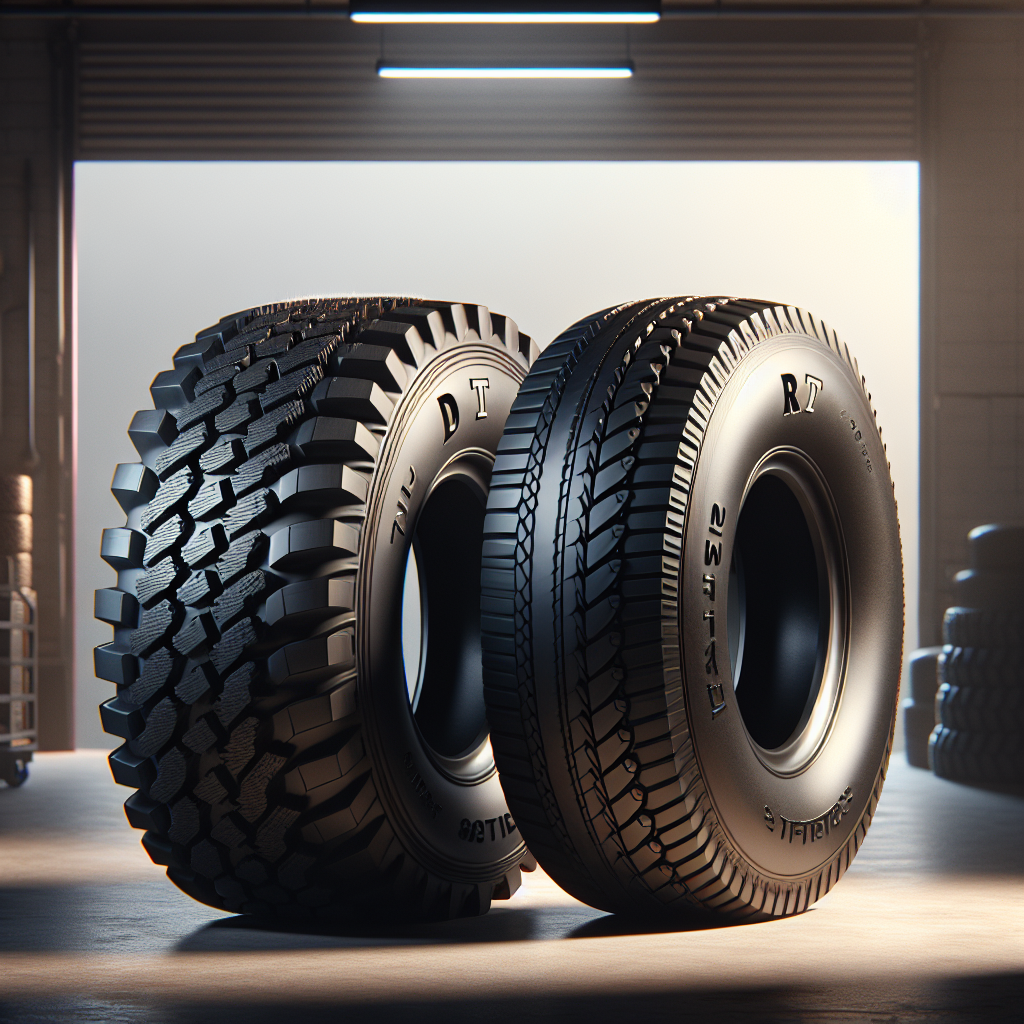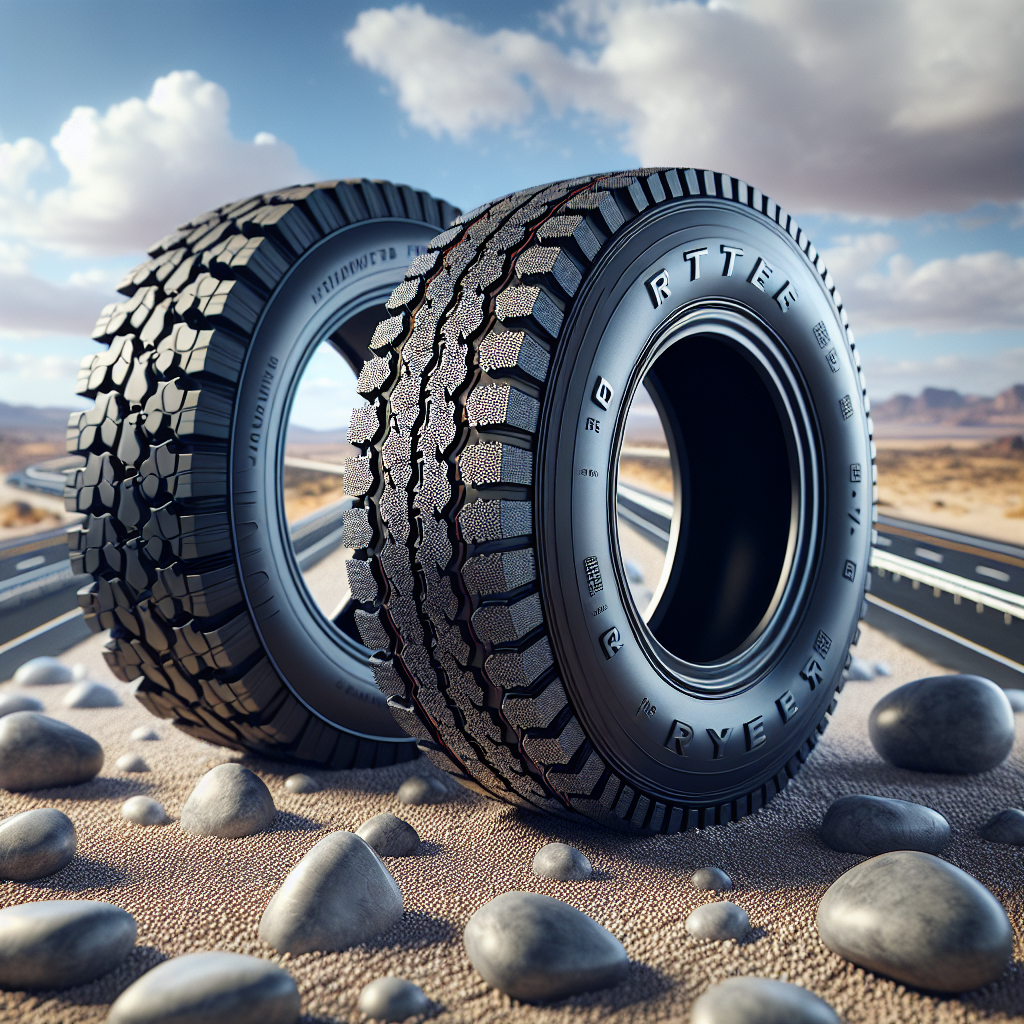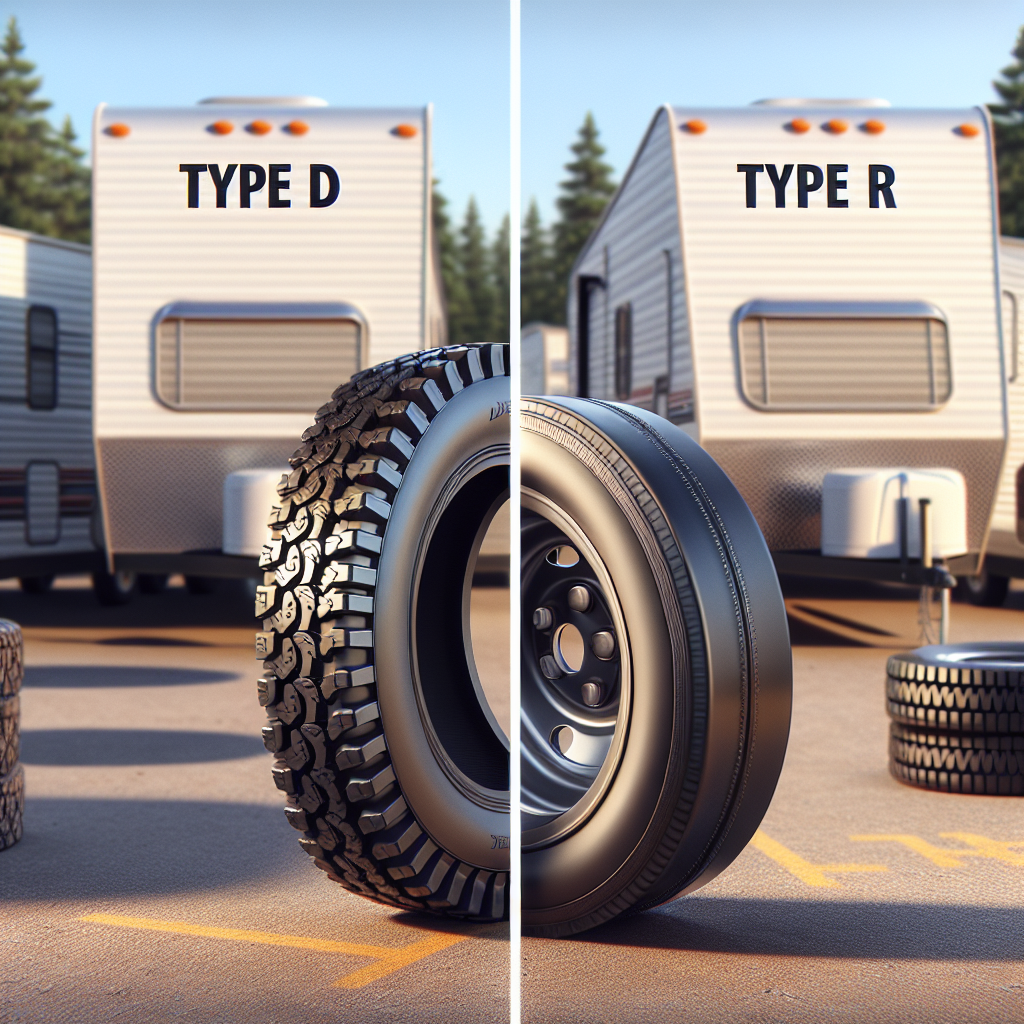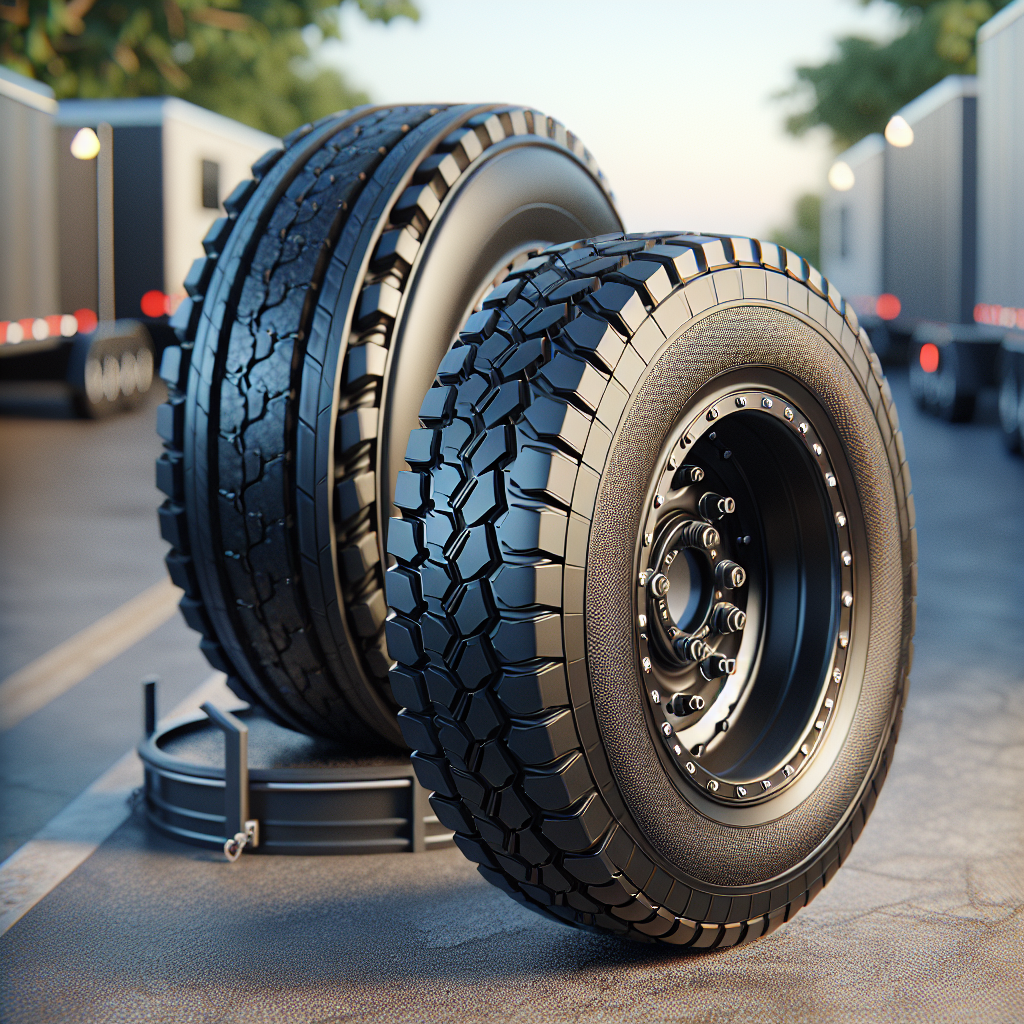When it comes to ensuring the safety and performance of your trailer, understanding the difference between D and R trailer tires is vital. These two types of tires are designed for different purposes and play a crucial role in how your trailer handles on the road. D tires are typically rated for a higher load capacity, making them ideal for heavy-duty trailers that carry substantial weight. On the other hand, R tires are generally designed for lighter loads and provide a smoother ride, which can be beneficial for recreational trailers.
Understanding these distinctions can significantly impact your trailer's performance and safety. For example, using the wrong type of tire could lead to issues such as poor handling, increased wear and tear, and even tire failure. This is where a comprehensive trailer monitoring system becomes invaluable. By keeping track of vital statistics such as tire pressure and temperature, you can proactively manage your trailer's condition and longevity.
As you delve deeper into the specifics of trailer tire difference between D and R, knowing which tire type suits your trailer's needs is key to ensuring a safe towing experience. Tow with peace of mind, knowing that trailerwatchdog is standing guard.
Understanding the Basic Differences Between D and R

To fully appreciate the trailer tire difference between D and R, it's essential to grasp their fundamental characteristics. D tires are engineered for durability and strength, making them suitable for heavier trailers used in commercial applications. They often feature a reinforced sidewall to withstand the rigors of carrying heavy loads, which directly contributes to their higher load ratings.
Conversely, R tires are typically lighter and designed for recreational use, such as travel trailers or campers. These tires prioritize comfort and fuel efficiency over load capacity, offering a smoother ride for lighter loads. They are often less rigid than D tires, which helps absorb road imperfections but may lead to decreased stability under heavy weights.
Here are some key differences to consider:
- Load Capacity: D tires can handle heavier loads compared to R tires.
- Ride Quality: R tires generally offer a more comfortable ride.
- Application: D tires are suited for commercial use, while R tires are ideal for recreational activities.
Understanding these differences not only helps you choose the right tire for your trailer but also enhances overall safety and efficiency during towing. Choosing the appropriate tire type based on your specific needs can lead to significant long-term benefits.
Performance Implications of D and R Trailer Tires

The performance implications of D and R trailer tires are crucial factors to consider when selecting tires for your trailer. Each type of tire has distinct characteristics that influence how well it performs under various conditions.
D tires are built with enhanced durability, which allows them to withstand higher stress levels during towing. This makes them ideal for trailers that frequently carry heavy loads. Their robust construction not only helps in maintaining traction but also reduces the likelihood of blowouts, ensuring safer travels on highways and rough terrains.
On the other hand, R tires are designed to provide a smoother ride, particularly for lighter trailers. Their softer rubber compounds improve grip on the road, but this can come with trade-offs. While they excel in comfort and fuel efficiency, they may not perform as well under heavy loads. This can lead to increased tire wear and potential instability, especially when maneuvering or braking.
When evaluating tire performance, consider the following:
- Traction: D tires provide superior grip under heavy loads, while R tires excel in lighter, recreational settings.
- Heat Resistance: D tires are more resistant to heat build-up, reducing the risk of blowouts during long trips.
- Wear and Tear: R tires may wear out faster under heavy loads compared to their D counterparts.
By understanding these performance implications, trailer owners can make informed decisions, ensuring their vehicle is equipped with tires that match its intended use.
Choosing the Right Trailer Tire for Your Needs

When it comes to choosing the right trailer tire for your needs, several factors play a pivotal role in ensuring optimal performance, safety, and longevity. Selecting the appropriate tire type is essential for maximizing your trailer's capabilities.
First and foremost, assess the load capacity of your trailer. If you frequently haul heavy cargo, opting for D tires is advisable due to their robust construction and ability to handle greater weight without compromising safety. Conversely, for lighter loads or recreational use, R tires may be sufficient, offering a smoother ride and better fuel efficiency.
Next, consider the terrain where you will be towing. If your travels involve rough or unpaved roads, D tires provide enhanced durability and grip, making them a better choice. For primarily highway driving, R tires can offer a quieter, more comfortable experience.
Additionally, think about the weather conditions you typically encounter. If you often drive in wet or slippery conditions, investing in tires with better tread patterns, such as D tires, can improve traction and minimize risks of hydroplaning.
Finally, don’t overlook maintenance considerations. Properly maintaining your tires, regardless of type, is crucial. Regular inspections for wear and tear, maintaining correct tire pressure, and timely rotations will extend the life of your tires and enhance safety.
By carefully evaluating these factors, you can choose the right trailer tire that aligns with your specific needs and ensures a reliable and safe towing experience.
Safety Considerations for D and R Trailer Tires
When it comes to safety considerations for D and R trailer tires, understanding the inherent differences between these tire types is crucial for maintaining a secure towing experience. Each tire type has its own advantages and potential risks that should be carefully weighed.
Starting with **D tires**, their design and construction make them ideal for heavier loads. However, the increased load capacity also means they can generate more heat during operation, which can lead to potential blowouts if not monitored properly. Regularly checking the axle temperature and ensuring proper tire pressure can significantly mitigate this risk.
On the other hand, **R tires** are designed for lighter loads and provide a smoother ride. While they may not have the same weight-bearing capacity as D tires, they offer better fuel efficiency and can lead to decreased stress on the trailer's suspension system. However, their lighter construction might not perform as well under heavy loads, increasing the risk of tire failure if overloaded.
Another important safety aspect is the tread design. D tires typically feature more aggressive tread patterns, which enhance grip in adverse conditions. This is particularly beneficial when towing on uneven or slippery surfaces. Conversely, R tires are often designed for highway use, which may provide less traction in off-road scenarios.
Additionally, regular maintenance is vital for both tire types. This includes checking for signs of wear, ensuring proper alignment, and rotating tires as recommended. By prioritizing these safety considerations, you can make informed decisions that enhance the overall safety and performance of your trailer.
Maintaining Your Trailer Tires for Longevity

To ensure the longevity of your trailer tires, **regular maintenance** is essential. Proper care not only extends the life of your tires but also enhances safety during your travels. Here are some key maintenance tips to keep in mind:
- Regular Inspections: Frequently check for signs of wear, such as cracks, bulges, or uneven tread wear. Early detection of these issues can prevent more significant problems later on.
- Check Tire Pressure: Maintaining the correct tire pressure is crucial. Under-inflated tires can lead to overheating and blowouts, while over-inflated tires can cause reduced traction. Use a reliable gauge to monitor pressure regularly.
- Rotate Tires: Just like with regular vehicles, rotating your trailer tires can help ensure even wear. Following a rotation schedule can significantly extend their lifespan.
- Monitor Load Capacity: Ensure you are not exceeding the tire's load rating. Overloading can lead to premature tire wear and possible failure, especially with D tires designed for heavier loads.
- Store Properly: If your trailer will be unused for an extended period, store it in a cool, dry place and consider using tire covers to protect against UV damage.
Implementing these maintenance practices can significantly enhance the performance and durability of your trailer tires, giving you peace of mind on the road. To further safeguard your trailer, consider utilizing a monitoring system. Tow with peace of mind, knowing that TrailerWatchdog is standing guard. Visit trailerwatchdog.com to learn more about how we can help you keep your trailer safe and smart.








